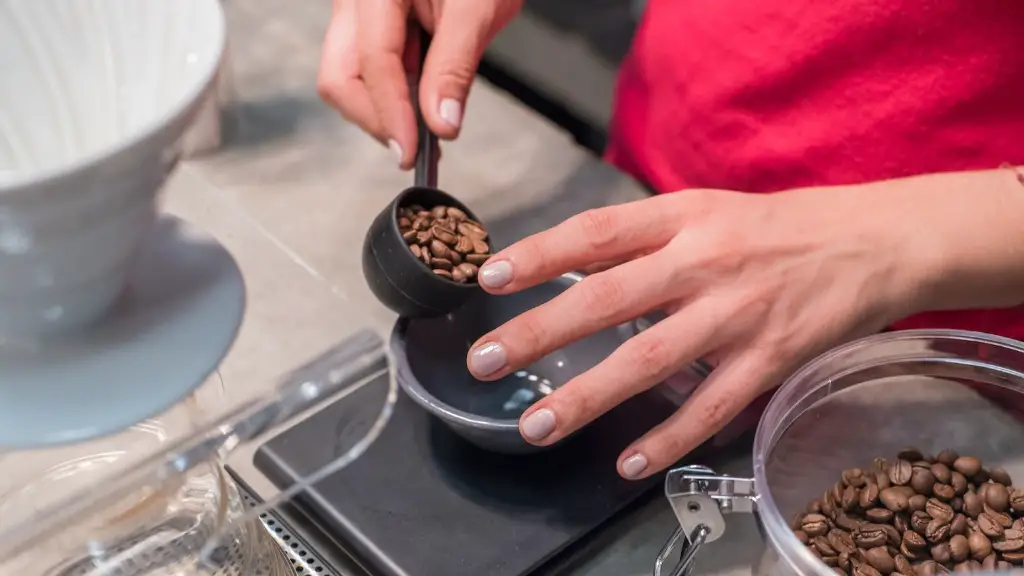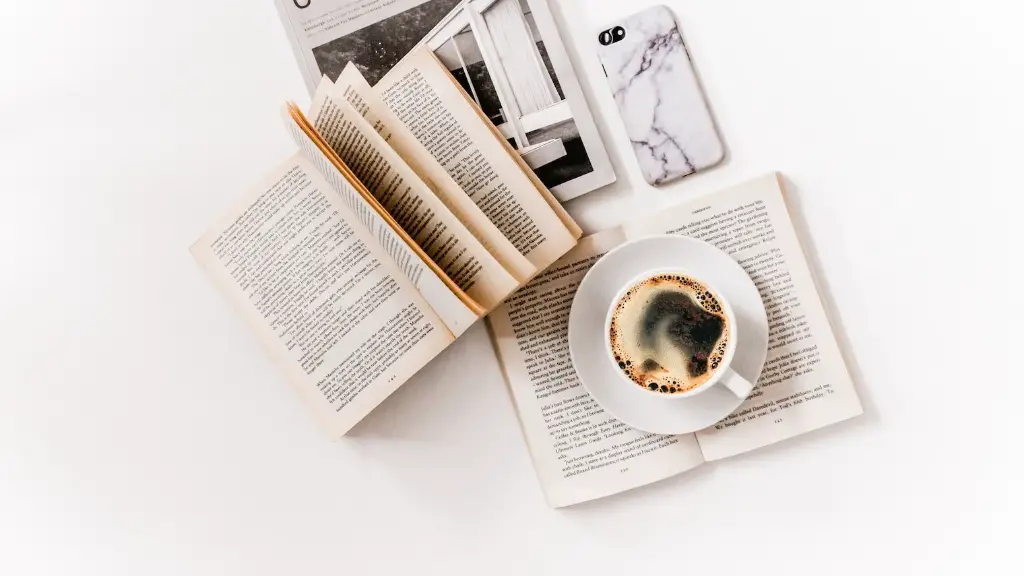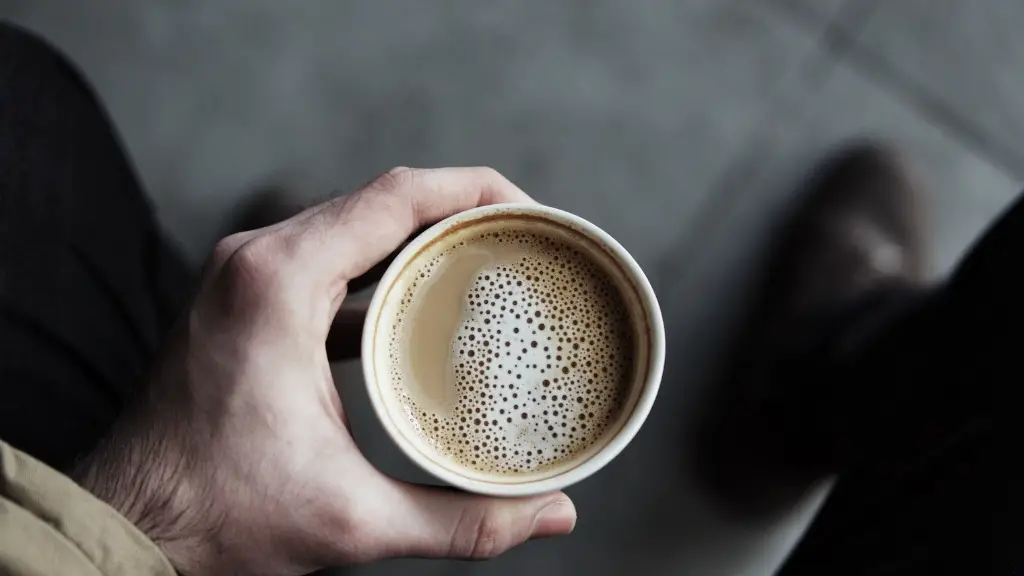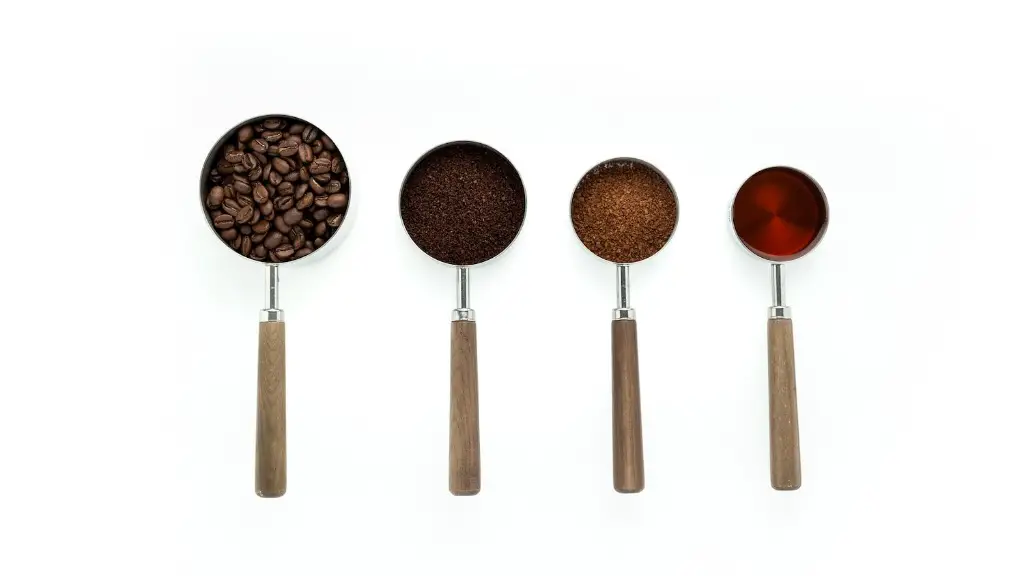For many people, drinking coffee is a daily ritual. But can one have their daily cup of joe prior to visiting the dentist? How does drinking coffee before a dental appointment impact teeth and overall oral health?
To answer this question, it is important to understand the effects of caffeine. Caffeine is the most widely researched and studied psychoactive drug in the world. Studies have consistently found that this stimulant can contribute to increased alertness, improved concentration, and enhanced physical performance.
On the contrary, caffeine can also have a detrimental effect on the human body. Studies have found that it can lead to a decrease in dental health. It can cause staining and discoloration of teeth, as well as an increase in sensitivity and pain. Furthermore, high levels of caffeine intake can lead to a decrease in the mineral density of dental enamel, altering its microstructure and making the teeth more susceptible to caries.
In terms of the effect of caffeine on a dental appointment, the American Dental Association recommends that patients should avoid drinking coffee before their appointment. This is because the acidity and staining effect of the beverage can compromise the results of various procedures, such as teeth whitening and cavity filling. Furthermore, caffeine consumption may lead to dry mouth, which reduces the effectiveness of fluoride treatment.
Moreover, if the patient has already been instructed to use a fluoride treatment prior to their appointment, drinking coffee can reverse the effectiveness of the procedure. Since the stimulant is known to reduce saliva production, it can reduce the effectiveness of a fluoride treatment and have a detrimental effect on oral health.
In conclusion, it is not recommended that patients drink coffee before a dental appointment. While there are some benefits associated with caffeine consumption, its overall effect on oral health can be detrimental. Therefore, it is best to avoid drinking coffee before visiting the dentist.
What Are the Alternative Beverages
If patients are looking for an alternative to coffee prior to their dental appointment, there are several options. These include herbal tea, which is naturally caffeine-free and is a great way to stay hydrated. Additionally, it is important to drink plenty of water as it helps to flush away food particles and bacteria, and keeps the mouth moist. Milk and juice are also viable options, although it is important to note that some contain high levels of sugar, which can lead to tooth decay.
For those who absolutely need their caffeine fix, low-acid coffee is available, as are decaffeinated versions. Although these alternatives to regular coffee do not have the same alertness-enhancing effects, they can provide the same taste without jeopardizing the results of a dental appointment.
In summary, there are several beverages that can be consumed prior to a dental appointment. It is important to keep in mind that coffee should be avoided as it can compromise the results of various procedures, such as teeth whitening and cavity filling. Hence, opting for alternative, non-caffeinated beverages is the best option.
What About Post-Dental Appointment Coffee Consumption?
It is important to note that patients should not only avoid coffee prior to their appointment, but also after the procedure. Following a procedure, the dentist may give instructions on what to do both before and after the appointment. It is important to follow the instructions, such as not drinking anything hot, abstaining from foods with a high sugar content, and avoiding coffee.
Above all, it is important to consult with the dentist. Different patients have different needs, and the dentist may have recommendations depending on the patient and the procedure. In some cases, it may even be possible to drink coffee in moderation after a procedure, but such advice should be provided by the dentist.
Overall, it is clear that coffee should be avoided prior to, and even after, a dental appointment. The acidic nature of the stimulant can lead to staining and discoloration, which can compromise the results of various procedures. Above all, it is important to always consult with the dentist before and after a procedure.
Is Coffee Bad for Teeth?
It is important to note that coffee is not all bad for teeth. Moderate coffee consumption can, in fact, be beneficial. Studies have found that regular coffee drinkers tend to have better oral health than non-coffee drinkers. It is believed that the lower levels of acidity in regular coffee may help reduce the risk of enamel erosion.
However, it is important to avoid excessive coffee drinking. While the beverage itself does not lead to tooth decay or periodontal disease, long-term excessive consumption can have a detrimental effect on oral health. This is because the drink is highly acidic and can cause staining and discoloration of teeth. Furthermore, it is important to remember that excessive levels of caffeine can lead to dry mouth, which increases the risk of caries.
In summary, moderate coffee consumption can be beneficial for teeth, but it is important to avoid overindulging. The beverage is highly acidic, and excessive intake can lead to staining, discoloration, and an increased risk of caries. If a patient is a regular coffee drinker, they should ensure that they are brushing their teeth twice a day and visiting the dentist regularly.
Coffee Sensitivity and Reactions
Although not everyone is affected by the acidic nature of coffee, some may experience discomfort or sensitivity after drinking the beverage. This is due to the citric acid present in it, which can damage the enamel and make the teeth more sensitive.
If someone experiences sensitivity or pain after consuming coffee, there are a few preventative measures that can be taken. Firstly, it is important to avoid brushing one’s teeth immediately after drinking the beverage, as the citric acid can weaken the enamel and make it more prone to wear. Additionally, it is recommended to swish water around the mouth to remove the acid. Furthermore, it is important to ensure that the toothpaste used is designed for sensitive teeth, as this will help to soothe the pain.
In addition to the above-mentioned tips, using a straw can help to reduce the contact of the beverage with the teeth, thus decreasing the likelihood of staining and damage. Additionally, drinking milk or dairy products immediately after consuming coffee can help to neutralize the acidity, reducing the risk of damage.
In summary, those who experience sensitivity after consuming coffee should take the necessary precautions to reduce the likelihood of damage. Apart from avoiding brushing the teeth too soon, using a straw and drinking milk or dairy products after consuming the beverage can help to neutralize the acidity and thus reduce the risk of damage.
Myths Surrounding Coffee and Teeth
In recent years, there has been a proliferation of myths surrounding the effect of coffee on teeth. One of the most pervasive is that coffee can lead to yellow teeth. While this is true to a certain extent, it should be noted that coffee is not the sole cause of yellow teeth. In fact, it is not even the major cause; improper oral hygiene is more usually to blame.
Another myth is that coffee can cause cavities. As mentioned earlier, this is not accurate. Caffeine itself does not lead to cavities, but excessive amounts can lead to dry mouth, which in turn can contribute to an increase in the risk of tooth decay. Therefore, it is important to limit or avoid coffee consumption for those who are prone to dry mouth or prone to cavities.
Additionally, there is the myth of coffee being bad for the teeth in general. As discussed earlier, moderate coffee drinking is actually beneficial for oral health. Therefore, those who are coffee enthusiasts can drink the beverage in moderation. Above all, it is important to remember to brush and floss regularly and to attend routine dental appointments.
All in all, there are a number of myths surrounding the effect of coffee on teeth. It is important to note that, while coffee can lead to staining and discoloration, proper oral hygiene is actually the major cause of yellow teeth. Additionally, caffeine itself is not the cause of cavities, but dry mouth can be. Finally, moderate coffee consumption can actually be beneficial for oral health, provided that the patient practices proper oral hygiene.





